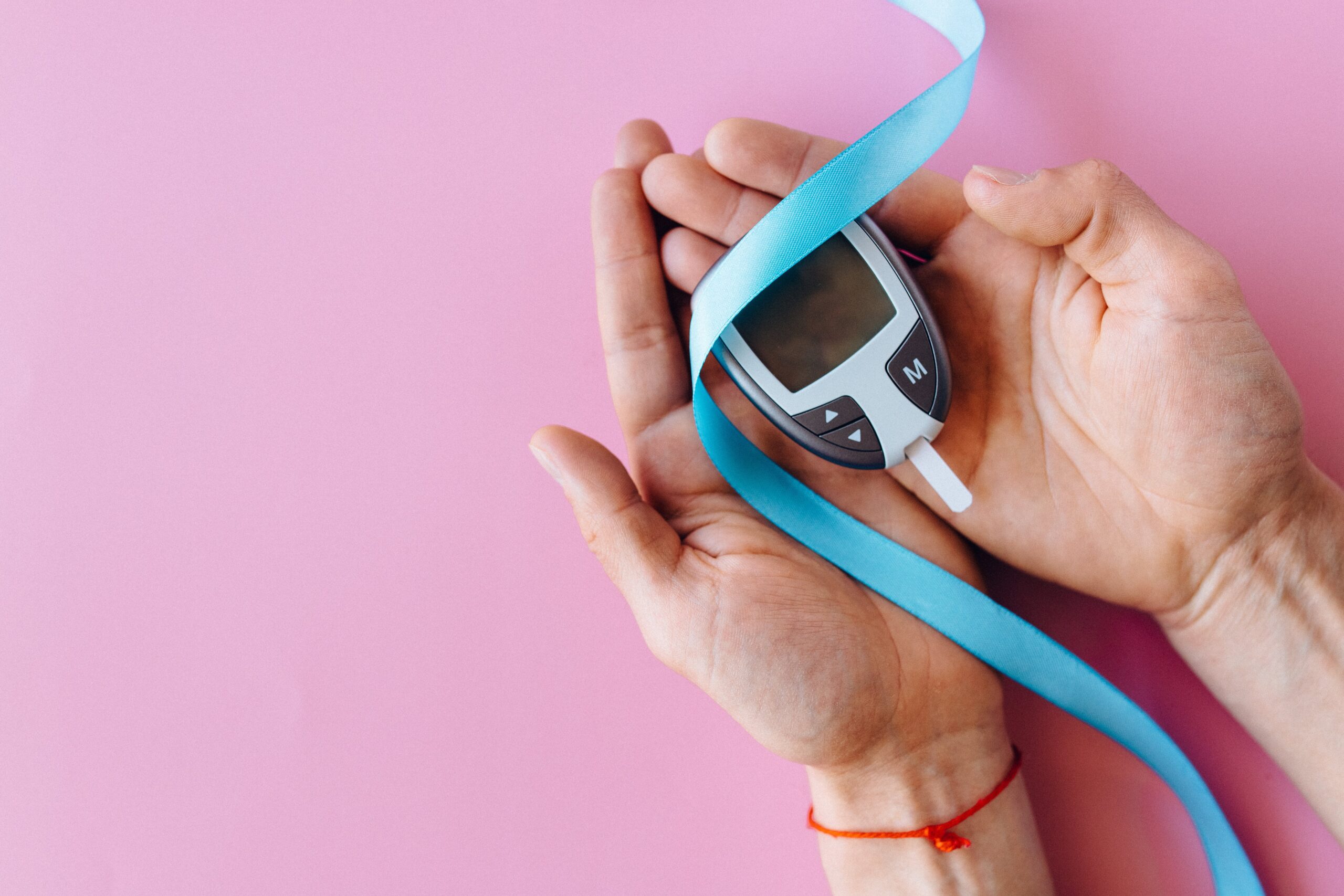Obesity and Insulin Resistance

Table of Contents
While one may consume junk and fast food to meet their palette’s cravings, it does more harm than good in the long run. Absorbing more calories than one can burn through exercising or other physical activities can result in obesity and insulin resistance.
Obesity and Insulin Resistance – What Is Insulin?
When an individual’s body mass index exceeds 30, they are prone to being diagnosed with obesity and insulin resistance. This chronic disease is a silent condition that develops gradually, caused by excessive adipose tissue accumulation in the body because of the long-term imbalance between calorie intake and energy expenditure.
Insulin is a peptide hormone produced in the pancreas that enables your body to convert sugar (glucose) into energy and metabolism. The endocrine function of the pancreas allows the beta cells in the islets of Langerhans to make the hormone, which is then directly released into the bloodstream. The cells in the muscles, fat, and liver don’t respond to insulin as they should, resulting in insulin resistance.
This fatty acid accumulation in insulin-sensitive nonadipose tissue can lead to ectopic lipid deposition, thereby causing lipotoxicity. Such lipotoxicity, along with chronic inflammation, oxidative stress or mitochondrial dysfunction, can cause insulin resistance. Obesity with insulin resistance syndrome and cardiovascular risks are related to the degree of obesity and body fat distribution.
Risk Factors and Causes
Insulin resistance is a temporary or chronic condition that can affect anyone; even individuals without diabetes. It primarily depends upon the excess fat accumulated around the belly, consuming processed or high-carbohydrate foods, leading a sedentary, inactive lifestyle, or being exposed to certain medical treatments, such as HIV treatments or steroids.
Insulin resistance can cause the following conditions:
● Obesity
● Cardiovascular diseases
● Metabolic syndrome
● Polycystic Ovary Syndrome (PCOS)
● Nonalcoholic fatty liver disease
● Chronic insulin resistance can lead to prediabetes and type-2 diabetes if left untreated
● Gestational diabetes
Other medical issues, such as menopause, Cushing’s syndrome, hyperthyroidism, or Prader-Willi syndrome, are also some reasons behind obesity. Consuming medications, like beta-blockers or high blood pressure medications, birth control pills, antidepressants, corticosteroids, or diabetes-specific medication can cause weight gain.
Complications and Comorbidities
Since the muscles, fat, and liver cannot appropriately make use of insulin, they can’t efficiently take up glucose from the blood or store it. Therefore, the pancreas produces more insulin to overcome the increasing blood sugar levels, causing hyperinsulinemia. Elevated insulin levels can cause weight gain, thereby worsening the pre-existing condition.
Hyperinsulinemia also gives rise to higher triglyceride levels thereby increasing cholesterol levels, high blood pressure (hypertension), atherosclerotic cardiovascular diseases, and lower high-density lipoprotein (HDL) levels.
Prevention and Lifestyle Modifications
To nip obesity and insulin resistance in the bud, adopt the following lifestyle modifications –
● Get at least 150 minutes of moderate exercise in a week.
● Avoid consuming a diet high in carbohydrates, saturated and refined sugar foods with a high glycemic index like cookies, cakes, pastries, white bread, aerated drinks, processed starches, red meat, and oily fried food. Instead, include lean poultry, proteins, non-starchy, whole grains, fruits, vegetables, and foods with a low glycemic index in your diet, such as nuts, beans and legumes, low-fat dairy products, and fish containing omega-3 fatty acids.
● Ensure you stay within the recommended body mass index suitable for your body. Stay active to shed extra calories to avoid weight gain and prevent obesity and insulin resistance.
● A disturbed circadian rhythm and inadequate sleep can cause weight gain. Get 7-8 hours of sleep daily.
● It’s a common practice to reach out for your comfort food the moment an individual gets stressed. Chronic stress causes the body to activate biological pathways involving cortisol, the stress hormone, which results in the body gaining more weight. Taking a walk, preparing a home-cooked meal, or investing time in pursuing a stress-busting activity goes a long way in helping you de-stress.
Conclusion
When you choose to lead a sustainable lifestyle, a healthy life will choose you. Discover more information with BP in Control’s online portal. Find expert physicians through our Find a Physician tool, ensuring early diagnosis and personalised intervention for health conditions.
FAQs
1. Can losing weight help with insulin resistance?
Weight loss through calorie restriction can help with obesity and insulin resistance or even reverse it in some cases. Watching your portion size and trying intermittent fasting can go a long way in controlling your weight. Following the 16:8 schedule with 16 hours of fasting and an eight-hour window to consume food can help keep your insulin levels stable. Quitting smoking and drinking can also help you keep your weight in check.
2. What are the signs and symptoms of insulin resistance in obesity?
Some symptoms of insulin resistance in obesity include –
● Increased thirst
● Frequent urination
● Headaches
● Blurry vision, which can lead to diabetes retinopathy
● Slow healing cuts
● Skin infections or darkened skin in the armpits, back, and side of the neck
3. Is insulin resistance reversible in obesity?
Steps including diet control and keeping your weight in check can certainly help reverse insulin resistance in obesity. To lead a healthy lifestyle, resort to a Mediterranean, heart-healthy, and DASH diet.
4. Can children and adolescents experience insulin resistance due to obesity?
Obesity in children and young adults is increasing owing to a sedentary and laidback lifestyle, unhealthy eating patterns, lack of physical activities, and poor habits. All these factors contribute to insulin resistance in the younger population, emphasizing the need for early intervention.
Sources –
● https://www.verywellhealth.com/obesity-causes-4014562
● https://www.everydayhealth.com/obesity/guide/causes-and-risk-factors/
● https://www.sciencedirect.com/science/article/abs/pii/S1359644621004797
● https://www.ncbi.nlm.nih.gov/pmc/articles/PMC380258/
● https://www.mayoclinic.org/diseases-conditions/obesity/symptoms-causes/syc-20375742
● https://my.clevelandclinic.org/health/diseases/11209-weight-control-and-obesity
● https://www.medicalnewstoday.com/articles/317382#takeaway
● https://my.clevelandclinic.org/health/diseases/22206-insulin-resistance


Comments (0)
No comments found.Add your comment